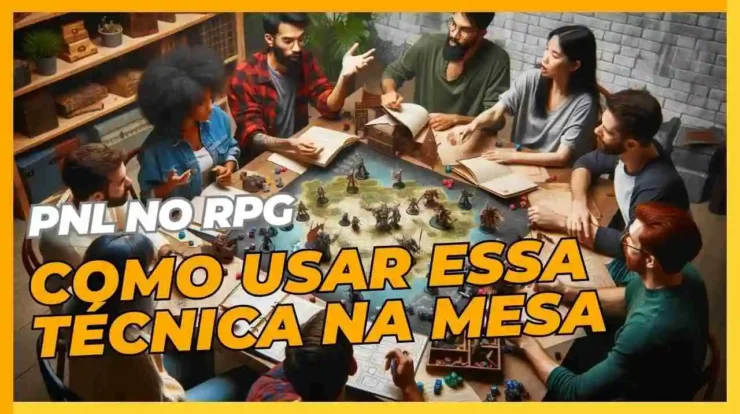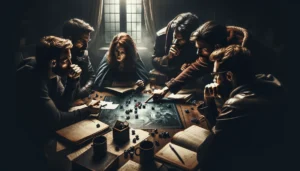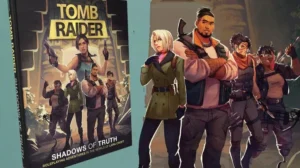
How NLP can transform your storytelling in Tabletop RPG
Tabletop RPG is a shared journey of creativity and imagination. For masters, mastering the art of narration is crucial.
Fortunately, Neuro-Linguistic Programming (NLP) offers valuable tools. Here, we’ll explore how to use NLP to enrich your Tabletop RPG sessions.
Effective Communication: The Heart of Narration

Adjusting your Language
Initially, it is essential to adapt the language to capture the players’ attention.
NLP teaches techniques for fine-tuning speech, ensuring that each description resonates with participants.
Consequently, this keeps engagement high and immersion deep.
Interpreting Body Language
Furthermore, understanding body language is essential. This allows the GM to notice subtleties in the players’ reactions, adjusting the narrative to keep them engaged.
Therefore, attention to nonverbal details is an invaluable skill.
Building Rapport: The Foundation of Trust
Establishing Connections
Additionally, creating a quick connection with players is vital. Using NLP techniques, such as mirroring, strengthens rapport.
This not only facilitates communication, but also promotes a collaborative and trusting gaming environment.
Anchoring: Emotional Depth in the Game

Invoking Specific Emotions
Grounding is extremely powerful for evoking emotions.
For example, a symbolic item can be used to bring up intense feelings at key moments.
Thus, the narration gains an additional layer of emotional depth.
Clear Goals: Driving the Narrative
Motivating Players with Goals
Setting clear goals is another effective strategy. NLP suggests ways to set and achieve goals that can be woven into the fabric.
This motivates players to stay focused, enriching their Tabletop RPG experience.
Modeling: Learning from the Masters
Replicating Success
Furthermore, modeling allows you to learn from the success of experienced masters.
Adapting these strategies to your own style can transform the way you tell your stories.
Therefore, seeking inspiration from renowned masters is a smart step.
Reframing: Overcoming Challenges

Seeing Obstacles as Opportunities
Finally, reframing changes the perception of challenges. In Tabletop RPG, this means using failures as triggers to enrich the narrative.
This way, each obstacle becomes an opportunity for the characters to grow.
In conclusion, integrating NLP techniques into Tabletop RPG narration can completely transform the gaming experience.
Thus, by focusing on effective communication, establishing rapport, emotional anchoring, defining goals, modeling success, and reframing challenges, masters elevate their storytelling ability.
This not only engages players more deeply, but also makes each session unforgettable.
How NLP can transform your storytelling in Tabletop RPG
In short, the integration of NLP techniques into the art of tabletop RPG mastering not only enriches the narrative, but also strengthens the connection between master and players, transforming each session into a unique and memorable experience.
By applying methods such as language tuning, reading body language, building rapport, anchoring, goal setting, modeling and reframing, masters can take their storytelling skills to new heights.
Therefore, exploring NLP in the context of Tabletop RPG proves to be a powerful strategy to enrich adventures, ensuring that each game is not just a story told, but a journey lived.
Source: https://www.caixinhaquantica.com.br/como-a-pnl-pode-transformar-sua-narracao-no-rpg-de-mesa/


